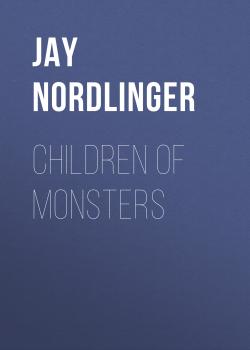ТОП просматриваемых книг сайта:
Jay Nordlinger
Список книг автора Jay NordlingerАннотация
In this book, Jay Nordlinger gives a history of what the subtitle calls “the most famous and controversial prize in the world.” The Nobel Peace Prize, like the other Nobel prizes, began in 1901. So we have a neat, sweeping history of the 20th century, and about a decade beyond. The Nobel prize involves a first world war, a second world war, a cold war, a terror war, and more. It contends with many of the key issues of modern times, and of life itself.It also presents a parade of interesting people—more than a hundred laureates, not a dullard in the bunch. Some of these laureates have been historic statesmen, such as Roosevelt (Teddy) and Mandela. Some have been heroes or saints, such as Martin Luther King and Mother Teresa. Some belong in other categories—where would you place Arafat? Controversies also swirl around the awards to Kissinger, Gorbachev, Gore, and Obama, to name just a handful.Probably no figure in this book is more interesting than a non-laureate: Alfred Nobel, the Swedish scientist and entrepreneur who started the prizes. The book also addresses “missing laureates,” people who did not win the peace prize but might have, or should have (Gandhi?).Peace, They Say is enlightening and enriching, and sometimes even fun. It has its opinions, but it also provides what is necessary for readers to form their own opinions. What is peace, anyway? All these people who have been crowned “champions of peace,” and the world’s foremost—should they have been? Such is the stuff this book is made on.
Аннотация
What’s it like to be the son or daughter of a dictator? A monster on the Stalin level? What’s it like to bear a name synonymous with oppression, terror, and evil?Jay Nordlinger set out to answer that question, and does so in this book. He surveys 20 dictators in all. They are the worst of the worst: Stalin, Mao, Idi Amin, Pol Pot, Saddam Hussein, and so on. The book is not about them, really, though of course they figure in it. It’s about their children.Some of them are absolute loyalists. They admire, revere, or worship their father. Some of them actually succeed their father as dictator—as in North Korea, Syria, and Haiti. Some of them have doubts. A couple of them become full-blown dissenters, even defectors. A few of the daughters have the experience of having their husband killed by their father. Most of these children are rocked by war, prison, exile, or other upheaval.Obviously, the children have things in common. But they are also individuals, making of life what they can. The main thing they have in common is this: They have been dealt a very, very unusual hand.What would you do, if you were the offspring of an infamous dictator, who lords it over your country?An early reader of this book said, “There’s an opera on every page”: a drama, a tragedy (or even a comedy). Another reader said he had read the chapter on Bokassa “with my eyes on stalks.”Meet these characters for yourself. Marvel, shudder, and ponder.


